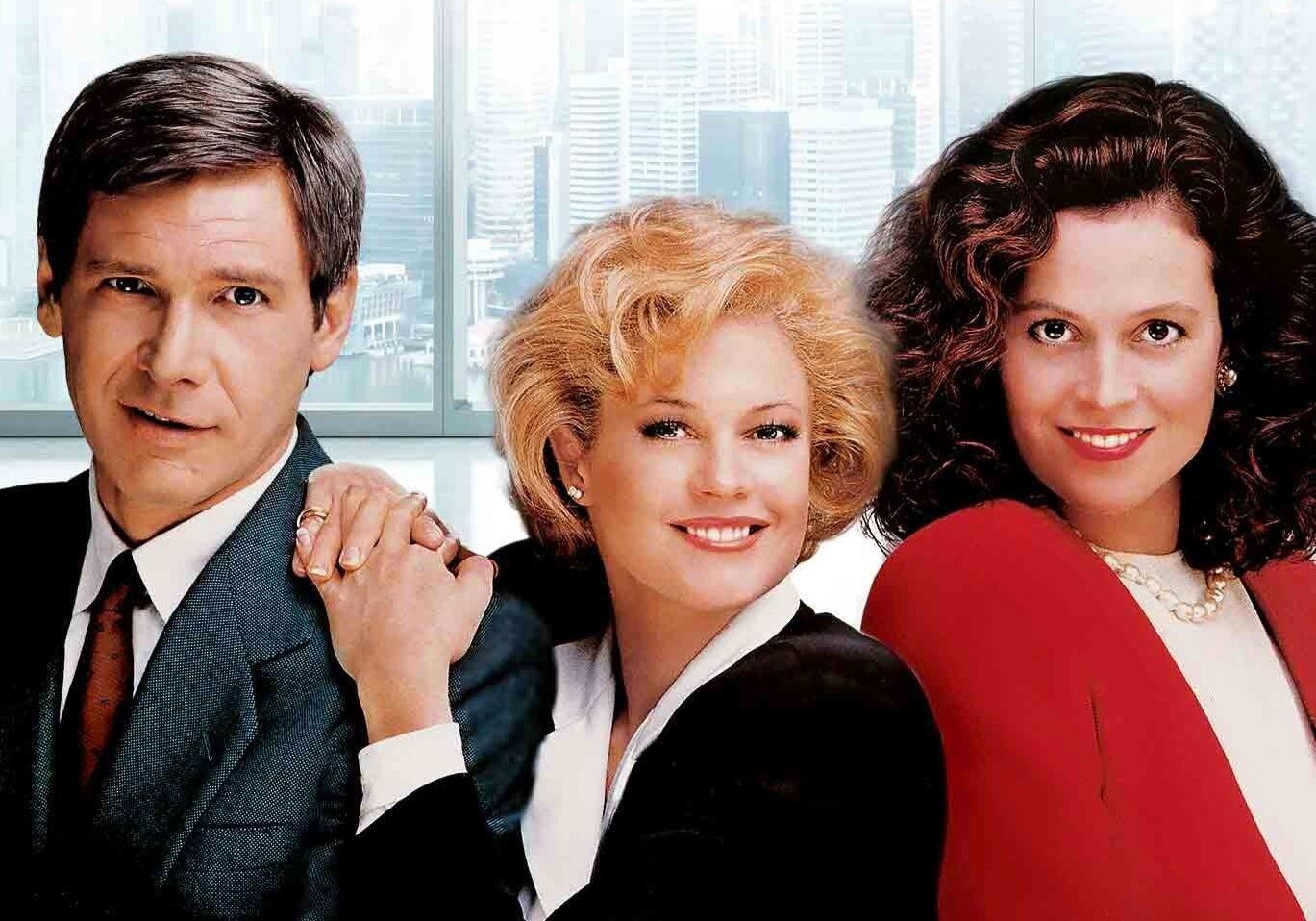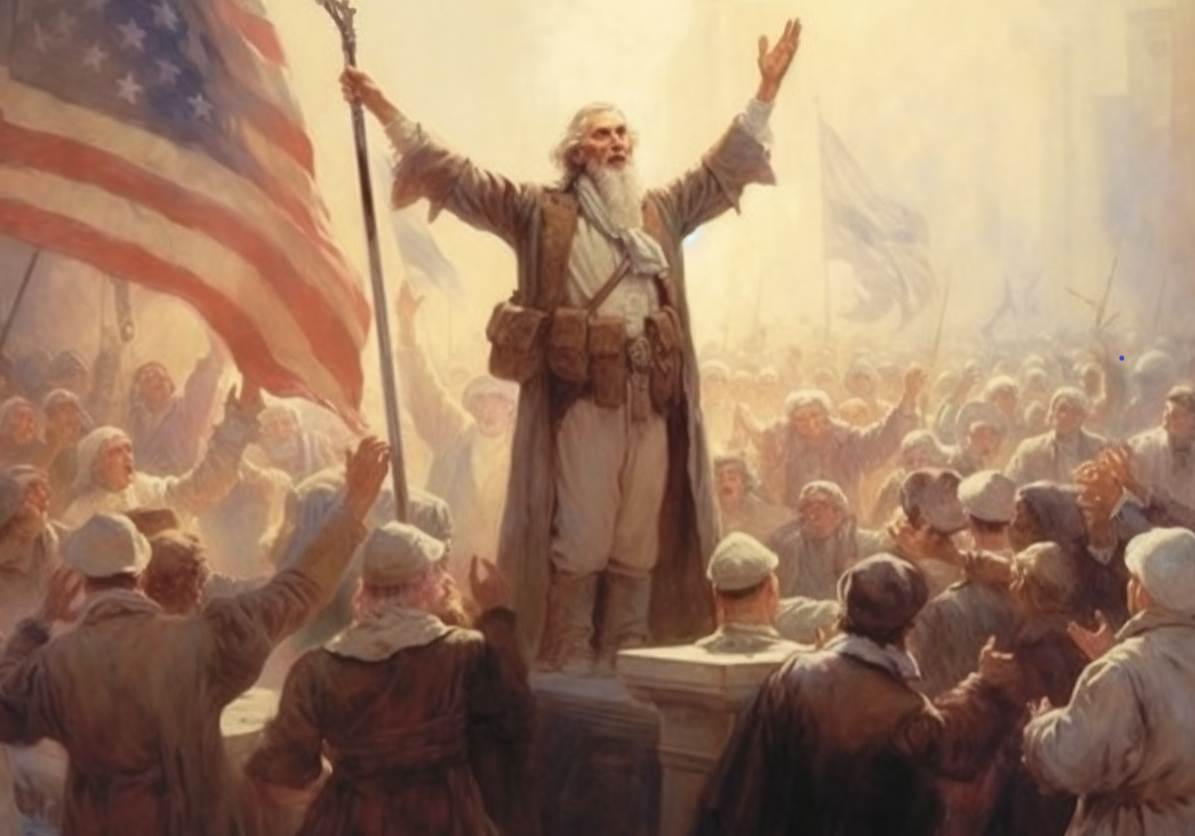My fave Mick Stevens Cartoon. That’s us, alright, smack dab in the belly of the beast.
T
You Are Here
To learn more about Epsilon Theory and be notified when we release new content sign up here. You’ll receive an email every week and your information will never be shared with anyone else.
Continue the discussion at the Epsilon Theory Forum
17 more replies
The Latest From Epsilon Theory
DISCLOSURES
This commentary is being provided to you as general information only and should not be taken as investment advice. The opinions expressed in these materials represent the personal views of the author(s). It is not investment research or a research recommendation, as it does not constitute substantive research or analysis. Any action that you take as a result of information contained in this document is ultimately your responsibility. Epsilon Theory will not accept liability for any loss or damage, including without limitation to any loss of profit, which may arise directly or indirectly from use of or reliance on such information. Consult your investment advisor before making any investment decisions. It must be noted, that no one can accurately predict the future of the market with certainty or guarantee future investment performance. Past performance is not a guarantee of future results. Statements in this communication are forward-looking statements. The forward-looking statements and other views expressed herein are as of the date of this publication. Actual future results or occurrences may differ significantly from those anticipated in any forward-looking statements, and there is no guarantee that any predictions will come to pass. The views expressed herein are subject to change at any time, due to numerous market and other factors. Epsilon Theory disclaims any obligation to update publicly or revise any forward-looking statements or views expressed herein. This information is neither an offer to sell nor a solicitation of any offer to buy any securities. This commentary has been prepared without regard to the individual financial circumstances and objectives of persons who receive it. Epsilon Theory recommends that investors independently evaluate particular investments and strategies, and encourages investors to seek the advice of a financial advisor. The appropriateness of a particular investment or strategy will depend on an investor’s individual circumstances and objectives.
This commentary is being provided to you as general information only and should not be taken as investment advice. The opinions expressed in these materials represent the personal views of the author(s). It is not investment research or a research recommendation, as it does not constitute substantive research or analysis. Any action that you take as a result of information contained in this document is ultimately your responsibility. Epsilon Theory will not accept liability for any loss or damage, including without limitation to any loss of profit, which may arise directly or indirectly from use of or reliance on such information. Consult your investment advisor before making any investment decisions. It must be noted, that no one can accurately predict the future of the market with certainty or guarantee future investment performance. Past performance is not a guarantee of future results. Statements in this communication are forward-looking statements. The forward-looking statements and other views expressed herein are as of the date of this publication. Actual future results or occurrences may differ significantly from those anticipated in any forward-looking statements, and there is no guarantee that any predictions will come to pass. The views expressed herein are subject to change at any time, due to numerous market and other factors. Epsilon Theory disclaims any obligation to update publicly or revise any forward-looking statements or views expressed herein. This information is neither an offer to sell nor a solicitation of any offer to buy any securities. This commentary has been prepared without regard to the individual financial circumstances and objectives of persons who receive it. Epsilon Theory recommends that investors independently evaluate particular investments and strategies, and encourages investors to seek the advice of a financial advisor. The appropriateness of a particular investment or strategy will depend on an investor’s individual circumstances and objectives.










Thanks Ben!
Interesting info/Questions: Anyone Please! Thanks
Kahneman: Bias and Noise
Question-1: Narratives obviously have direct or indirect effects and have an impact in structuring outcomes good or bad, what do you think of the above comments from D Kahneman on narratives or does it not have any effect at all?
Bens Comment: “Deflationary expectations, now 40+ years old, are becoming inflationary expectations. “
Question-2: I have read the archive I get most of Ben and Rusty’s propositions and learning more by the day…”Epsilon Appreciation”, I understand more is coming on this…I get Narrative/Common Knowledge/Zieghiest. One particular item and am watching to see real world is the chart on the Crude Oil Futures/S&P500 spread, very interesting for a novice like myself.
I am trying to break down that narrative of inflation to real world. We obviously all understand real world inflation has not been a real issue in over a decade, wage increase pretty much zero, I get the inflation narrative is in the environment, I can see it But I cannot connect it into real world terms and moving markets…any help would greatly be appreciated??
This note is scary-smart! I hope it becomes one of the largest nodes (most widely read) in the Epsilon Theory map.
Here’s a link to a “map of self-sovereign discovery” I stumbled across a few days ago. https://www.youtube.com/watch?v=wykaDgXoajc My adult life coincides with the 7 decades it illustrates, so I have personal recall of most of the macro-economic relationships shown. For instance, I remember briefing senior military officers in the early 1990’s about how Japan was eating our (America’s) lunch in the field of microchips. Who knew how Japan’s relative ascendancy would fade! When I visited primitive, impoverished China in the 1970’s (a year after Kissinger helped pry open that particular Pandora’s box), my imagination utterly failed to recognize the amazing human potential waiting to be unleashed there. You are so, so right about the future trajectory of the American empire. We pack members gotta pay attention…
BTW, Ben, it’s reassuring to know that someone else in the Western world remembers the Jacob Bronowski book and series.
The maps most frequently used to depict the world are Mercator projections. Because it’s difficult to project a globe tilted on a 23-degree axis on a flat piece of media, certain adjustments must be made. The longitude is somewhat correct and uniform, but latitudes grom grossly large as you move from the Equator north or south. Russia looks a LOT larger than it is (is IS 9 times zones across). That is a basic distortion of reality that we learn from early childhood; however, nobody (almost) presents us with alternative views. In the days of Ptolemy, the maps used were quite different from the ones we see today with the Western Hemisphere as the focus.
We live here, don’t we, so why not put us at the focus. The word “Orient” as into orient oneself came from a time when orient, from Latin meaning east, was actually at the top of the Beatus map. Why delve into all of this? Well, it was fun and shows that some parts about our perceptions are subject to being hacked, so to speak from the information produced by other for our consumption. It goes back centuries, but our Sapiens brains can only evolve so fast, probably meaning that we can be more easily manipulated by what we read, hear and see. Poorer is richer if you think that the accumulation of things on credit make you feel successful, sexy whatever. FWIW, Bob
“Cooperative and multi-play games in both international politics and domestic politics, now 70+ years old, are becoming competitive and single-play games.”
Perhaps this change should be nested under the above, but I think this author gets at the larger point -he questions if the 20th century assumptions that free trade, increased consumption and GDP growth, and a “growing economic pie” are in fact desirable.
“The Once and Future Worker: A Vision for the Renewal of Work in America”
https://www.amazon.com/gp/product/1641770147/ref=ox_sc_saved_title_1?smid=ATVPDKIKX0DER&psc=1
“The West won the world not by the superiority of its ideas or values or religion … but rather by its superiority in applying organized violence. Westerners often forget this fact; non-Westerners never do”. – Samuel P. Huntington (1927 – 2008)
Victor Davis Hanson has a vigorously (and well done, imho), written retort to this in, “Carnage and Culture” in case anyone is interested:
" …armies cannot be separated from the cultures that produce them and explains why an army produced by a free culture will always have the advantage."
https://www.amazon.com/Carnage-Culture-Landmark-Battles-Western/dp/0385720386
As-above-so-below work both ways as fractal. Everybody think and act within their local small environment is everything that matters, and yet we all pay attention to the central government and billionaires. 1000 millionaire is much better than 1 billionaire. While I was busy taking care of my W2 job and try to raise my kid right so that he will NOT be on food stamps, those small things that matters, today, Ben says the geo-political of American Empire and inflation can both kill you and give you a once in a life time opportunity. I guess I will have to stop doing my small things that matter and pay attention to the “zeitgeist” change in “BIG PICTURE”. I am tired Ben. Can I just keep working and save half and be okay? I guess NOT because the “Zeitgeist” change can be deadly. I am NOT trying to be sarcastic and Ben’s stuff is deep and wide. I am just saying we are all forced to play a game few understands and we will all got tired. Leave it to the expert? No, I can’t trust them. DIY follow youTube advice? You will be exhausted between the W2/kids and zeitgeist games.
Well, my understanding from epsilon theory is that inflation is like global warming. You try to measure price change across millions of products with all the commodity and manufacturing tech changes. It is as difficult as measuring temperature change at all coordinates under all weather and taking into account solar system properties and figure out how much is contributed by human behavior. Suggestion is don’t spend effort on this black hole. Rather, just pay attention to how human crowd talk about it and stay one step ahead. The goal is to win the game, NOT to get the Truth. It took me a while to adapt to this kind of zero-sum gambler thinking from an engineering background believe in differential equations and repeatable lab experiments.
JZ…Thanks for the help, greatly appreciate.
Couple of thoughts…Isn’t the entire meta-narrative game then just an exercise in the entire process of “prediction markets” to help one understand how we/markets are conditioned toward a particular event or emergent phenomena?
…if trying to price inflation is a difficult to impossible then all data is irrelevant and you just destroyed the entire quant industry?
…I get the zero sum game analogy but would only add this:
“All of this storytelling creates a huge amount of distracting noise for traders and investors. Narratives are seductive because they impose a sense of rationality on unexplained events; this allows us to be more easily fooled by what is probably random and meaningless activity. No one wants to admit that chance plays such a large role in events; acknowledging this truth would undermine our delusional self-image of being skilled, informed and in control” --Barry Rittholtz
Thank You for the conversation…it helps, still a Skeptic&Optimist…I am just trying to maintain a balance of reality from all of the noise, which is why I do not drink the coo-laid from any of the missionaries or tribes…always learning! Like Ben’s buddy at Demonitized stated…everyone is selling something!
Senator Ben Sasse had some interesting things to say about work-in-America in his WSJ editorial “The Challenge of Our Disruptive Era.” If interested, you can read it here: https://www.wsj.com/articles/the-challenge-of-our-disruptive-era-1492800857
Ben Hunt has commented on those who work with their hand versus those who deal in symbols and abstractions, but I’ve not been able to find that particular note of his. Anyone?
Looked into “The Once and Future Worker” on Amazon. Appreciate the pointer. The negative reviews are revealing. Lots of folks saying “My mind is made up. Don’t confuse me with facts.”
Would never take issue with VDH. The question in my mind is whether America’s armies of the future will, in fact, arise from a “free” culture.
Mike, I do NOT mind people sell things through story telling. I do NOT have any intention to figure out what’s real or whst’s fake. I do want to have a house to live, happy neighbors, feeling at ease for my kid to play on the steeet, going to school without a bullet proof school bag, retire, can be treated when I am sick. I want to be free and for that I need to make money. That’s what’s real for me and I have to get it done right. Initially I thought I could just work hard and save half and I will be fine. Then I discovered these rent-seeking, inflation stealing activities that enslave everybody. In stead of focus on creating wealth and save half, I need to learn this wealth transfer game to protect my earnings. Epsilon theory is gambler’s theory to me and if you want to figure out the wealth transfer game, you learn from gamblers. It is NOT about reality, it is about wealth transfer, your chips into my hand, zero sum game. What saddens me is that the system have forced people getting their attention away from wealth creation productive work and into wealth transfer games. This corrupts the morality and push the civilization backward. But it is the environment I am in and I have to survive. Epsilon theory helps a lot. In the end, we need to understand Kissinger and Huntington to understand how the transfer is done. Those kong’s in Casino pales in comparasion from these people pointing guns at the world population and transfer their wealth into the hands of the Empire.
Thanks for the share on Sasse. I do want to get to his new book- I like to hear any ideas to combat that - widening gyre.
I much agree with your last statement!